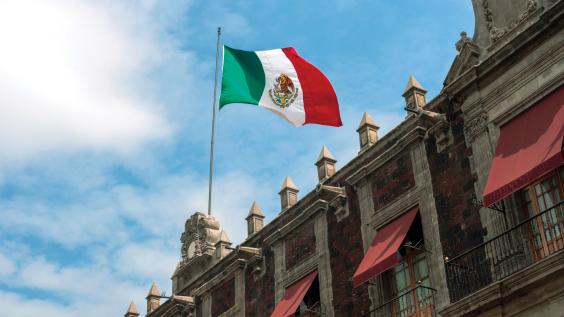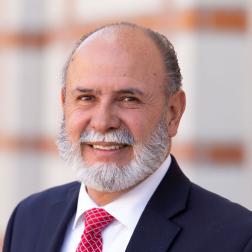The Right to Bear Arms in Mexico: Mexican Senator Invokes the U.S. Second Amendment

Table of Contents
Author(s)
On October 6, 2016, Mexican Senator Jorge Luis Preciado of the Partido Acción Nacional (PAN) published a policy recommendation in the Senate Gazette to amend Article 10 of the Mexican Constitution to emulate the Second Amendment of the U.S. Constitution, allowing Mexico citizens to carry handguns for personal protection in their homes, vehicles and businesses.
Preciado argues that the natural right to possess arms as a means of self-defense is affirmed in the Second Amendment, which states that “a well-regulated militia, being necessary to the security of a free state, the right of the people to keep and bear arms, shall not be infringed.” Preciado stated that Mexicans, too, “have the right to legitimate self-defense, and if a criminal enters my house or my business, he should at least know that on the other side there could be someone that has a weapon with which to respond … because we have organized groups that are completely armed and we have a society that is in a complete state of defenselessness.”
Notwithstanding current Mexican laws that prohibit the possession of most firearms, the majority of which are considered “strictly for the use of armed forces,” Preciado recommended that the Mexican Federal Firearms and Explosives Law be amended to establish that a business or vehicle should both be considered extensions of a person’s private residence — and therefore private citizens should be allowed to legitimately defend them.
Crime has run amok in Mexico, and the government’s inability to maintain law and order in its municipalities and states has exasperated ordinary Mexicans to the extent that many citizens groups have begun to take public safety matters into their own hands. The most poignant example of the loss of confidence in Mexican security and police forces became evident in 2012-2013, when citizens in the state of Michoacán banded together to form Autodefensas, or self-defense groups, to fight off criminals. Whether dealing with regional organized crime groups, small bands of extortionists or the more sophisticated drug cartels, the Mexican government has shown that it is either unwilling or unable to confront this overall criminal threat. Government inaction is evidenced by the fact that the Peña Nieto administration has failed to develop a meaningful and coherent public safety policy. The current government strategy favors maintaining a relatively defensive position, instead of developing a more offensive or confrontational posture to destroy, dismantle or disrupt criminal groups.
This defensive strategy has been evident in repeated cases in which government forces mobilized only after a region or city has already been engulfed in massive firefights and wholesale loss of life as a result of warring criminal factions, or after the destruction of property, such as when transportation or business supply lines like buses and tractor trailers are hijacked to form blockades. This strategy is in effect the government’s acquiescence to criminality and has fueled the rise of Mexican self-defense entities led by individual private citizens.
Preciado has asserted that the Peña Nieto administration has failed in its responsibility to protect its citizens against violent crime. He pointed to the fact that U.S. citizens have been afforded the right to bear arms since 1789 and that reports indicate that on average, 4.7 people out of every 100,000 are killed in the U.S., while Mexico’s homicide rate is an average of 21 killings out of every 100,000. In some Mexican states such as Colima or Guerrero, the rate is as high as 56 out of every 100,000. However, these stats do not indicate whether or to what extent the right to bear arms has contributed to lower homicide rates in the United States.
Gun control is an issue that requires serious thought and more balanced policy development. Some argue that having easy access to guns increases criminality. Others argue that gun control keeps weapons in the hands of criminals and out of the hands of those whom would be denied a means to defend themselves. Mexico is apparently trending toward personal gun ownership as a logical extension of the inherent right of self-defense. The precedent was set when the Mexican Army allowed Autodefensas groups in Michoacán to register and possess weapons for self-defense purposes. The next step is being pursued, as the Senate is now considering a policy that would allow individuals, not just groups, to possess handguns in order to defend themselves in the absence of the government’s ability to ensure the safety of the public.
Gary J. Hale is the nonresident fellow in drug policy and Mexico studies at the Baker Institute. From 2000 to 2010, he held the position of chief of intelligence in the Houston Field Division of the Drug Enforcement Administration, from which he retired in July 2010.
This material may be quoted or reproduced without prior permission, provided appropriate credit is given to the author and Rice University’s Baker Institute for Public Policy. The views expressed herein are those of the individual author(s), and do not necessarily represent the views of Rice University’s Baker Institute for Public Policy.



